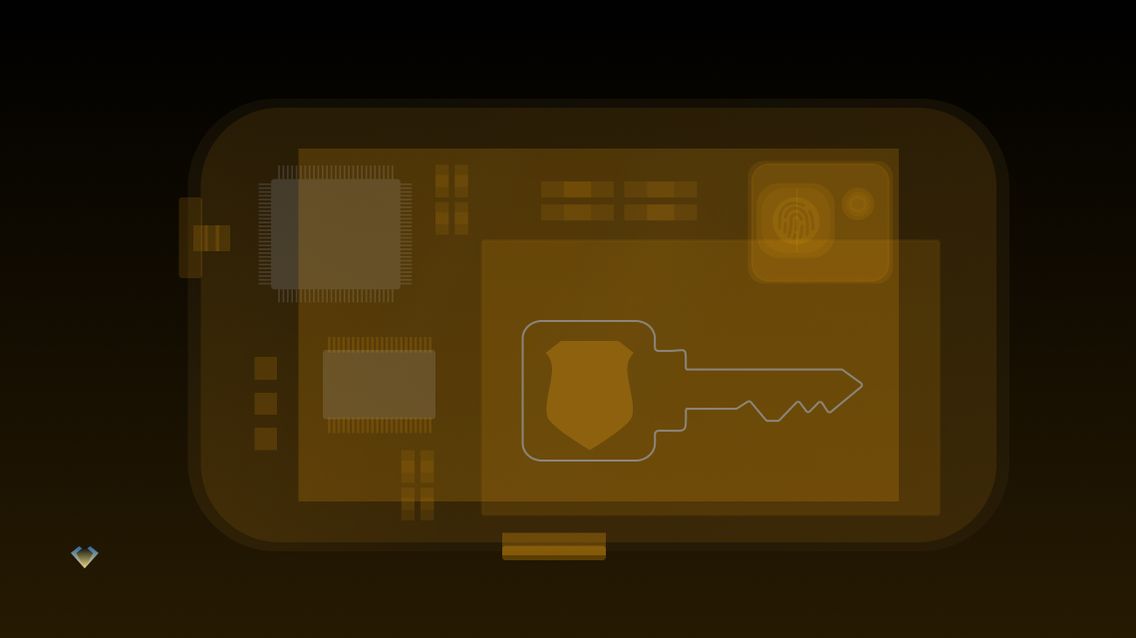

What exactly is a cryptocurrency hardware wallet?
A cryptocurrency hardware wallet is a device that securely stores your crypto. We'll teach you what it does and why it is the most secure way to store your crypto.
- Article Quick Links:
- What exactly is a cryptocurrency hardware wallet?
- The compromises we make to access regular money
- How cryptocurrency allows you to control your money with convenience and security
- Digital Signatures - Crypto’s Impenetrable Wall
- Convenience vs Security: Hot & Cold Wallets
If you’re starting to find your way around the world of crypto, one of the mantras you’ll find repeated, on forums and social media, is to store your coins on a cryptocurrency hardware wallet. Turns out, that is a really good piece of advice. To help you see why, this article will explain what a cryptocurrency hardware wallet is and does.
But for you to fully appreciate the wisdom of that tip, we’re also going to explore how cryptocurrency hardware wallets give you what matters most for accessing your money - convenience, security and control - which should hopefully get you over the line.
What exactly is a cryptocurrency hardware wallet?
The term is a bit of a word salad, so let’s start by breaking it down into something a little more digestible, and relatable.
To state the obvious, we are talking about a wallet, which establishes its basic purpose - something that is convenient for storing money, as well as keeping it safe.
We aren’t, however, talking about a wallet for regular money, but crypto, a new form of digital money that takes a completely different approach to storage and security, with you in complete control.
So cryptocurrency hardware wallets are designed to optimise security and convenience, but with you in control of your money, because of how cryptocurrency works. Don’t worry we’ll get to that.
The last piece of this puzzle tells us how it fulfils the function of a wallet, as it is a piece of hardware, a small physical piece of sophisticated technology; the NGRAVE ZERO fits in the palm of your hand.
So a cryptocurrency hardware wallet is a small physical device designed to allow you to conveniently and securely control your cryptocurrency - a new form of digital money.
That should hopefully give you a better general idea of what a cryptocurrency hardware wallet is, but probably isn’t enough to convince you why owning one is a crucial piece of advice for a crypto newbie.
To make that connection we need to back-up a little, and consider how we are forced to compromise on control and security in order to conveniently access and store regular money. This should help you understand the much more fundamental benefits of owning a crypto hardware wallet.
The compromises we make to access regular money
The money we are used to, which you’ll often hear referred to as fiat money, works on a trust system; trust in a central authority - the government and by proxy, banks - to create and manage money, and offer you ways to interact with it, through financial services.
Given we live most of our lives on the internet, you want digital access to your money, but that convenience of access has to be balanced with security. To get that, you have to compromise, by giving control of your money to a bank - giving them custody.In return banks provide convenient access via digital wallets - like an online account or dedicated Apps - but before you can get access, that pesky trust issue means you have to first prove your identity to the bank. Your bank then uses that information to create a security layer to grant you privileged access to your own money.
So the default option for storing and securing regular money is giving control to a bank, and trusting them to look after it, and your personal details, in return for the convenience of privileged online access.
You could take full control of any money you own, without the need for trust, by physically storing it somewhere secure, such as at home in a safe, locked behind a code that only you know, but that analogue approach is completely impractical for our digital lives.
In any case, it doesn’t address the biggest reason why the trust model of money is so problematic. Even if you can physically take custody of your money, the government’s actions determine what value it has in terms of purchasing power, because they have ultimate control. [Again the NGRAVE Academy has some great content explaining what that means in more detail].
Cryptocurrencies were created to fix this bigger problem, and a cryptocurrency hardware wallet is therefore, the ultimate expression of control, convenience and security of your money. You can have your financial cake and eat it.
Interesting fact - around 97% of all money in circulation is now digital; just numbers on a bank’s computer.
How cryptocurrency allows you to control your money with convenience and security
Cryptocurrencies like Bitcoin function as money in a trustless way, without a central authority, run by rules set in code, not a closed committee. You have complete control of your money, with security and convenience, and the reassurance of clear monetary rules .
This is an amazing achievement, but quite a difficult concept to grasp, not least because there is no one standard to how this is achieved, so we won’t unpack the full detail here .[It is worth investing some time in the NGRAVE ACADEMY where we have a deep-dive into how cryptocurrencies work].
To stay on point we’ll assume the trustless nature of cryptocurrency which gives you control, focus on what makes it secure and how cryptocurrency hardware wallets retain that security, without compromising convenience.
Digital Signatures - Crypto’s Impenetrable Wall
The key to cryptocurrency’s security is in its name, as it is derived from cryptography. Money secured by complex mathematics rather than the need to establish trust.
Instead of providing personal credentials to access your money - the trust model - the authority to move cryptocurrency comes from providing a digital signature called a Private Key. Whoever controls that key controls the funds associated with it.
As with the trust/fiat approach, you can choose to allow someone else to manage that key for you, who then grants you access to your crypto via credentials - just like your banking app.
This is what happens when you buy and sell on regulated cryptocurrency exchanges; they act as custodians for the crypto you hold, controlling that Private Key and giving you access once you’ve shared personal information; but this is just rehashing the same trust issue.
Though exchanges provide a convenient service, if your priorities are also security and control of your money, then you shouldn’t be comfortable trusting someone else with your Private Keys, and the compromises that entails. Here’s why:
- The Exchange controls your Private Key, so controls you crypto, not you
- Exchanges are online and can be hacked
- Your personal account is accessed online and can be hacked
- Using an exchange compromises your privacy as you have to establish trust
- Exchanges may share details with central authorities
If you want to enjoy the real benefits of trustless money, you need to be in control of that Private Key - to take custody, but with maximum security. This means using a wallet that controls it - often called non custodial - but retains security and convenience.
Convenience vs Security: Hot & Cold Wallets
There are several different types of non custodial cryptocurrency wallets that allow you to do this, but the level of security varies in order to satisfy the continued desire for convenience.
The most obvious compromise is whether the wallet is connected to the internet, because to send, trade and spend your crypto, you need to communicate with the blockchain that supports it, via the web.
Non custodial wallets that are online by default are described as Hot Wallets, the most popular being Mobile Wallets, unsurprising, given how much of our lives are managed via Smartphones.
They have obvious advantages for transacting, but it automatically increases the potential of someone compromising your Private Key, directly or indirectly, through that connection.
The opposite of a Hot Wallet - contain your surprise - is a Cold Wallet, which is disconnected from the internet by default, and connects only to allow you to transact.
Cryptocurrency hardware wallets are the most popular form of Cold Wallet. They maximise security, by being non-custodial and offline, retaining convenience through a combination of hardware and software that won’t expose your Private Keys, but allows you to easily manage your coins.
But even then, there are degrees of cold - pardon the pun - with some hardware wallets colder than others. To sign a Private Key, your hardware wallet still has to communicate with the relevant blockchain, which requires connecting to a computer/laptop and the internet - if only briefly - by USB, Bluetooth or Wifi, at which point there is still potential vulnerability.
NGRAVE’s ZERO generates your Private Keys offline and never exposes them afterwards. The device is completely "air-gapped", meaning it does not rely on any kind of network connection capability, nor does it require USB. The coldest of cold storage.
But this article isn’t intended as a sales pitch. Our aim was to explain what a cryptocurrency hardware wallet is and does, and why they are the most convenient and secure way to store and manage your cryptocurrency, that also enable you to retain control, which is after all, what we all want from money. Anything else will involve compromise.
We’ll end by borrowing another equally wise mantra that sums this message up….this is the way.
Article Quick Links:
- What exactly is a cryptocurrency hardware wallet?
- The compromises we make to access regular money
- How cryptocurrency allows you to control your money with convenience and security
- Digital Signatures - Crypto’s Impenetrable Wall
- Convenience vs Security: Hot & Cold Wallets

NGRAVE is a digital asset security company and the creator of the world’s most secure cryptocurrency wallet, NGRAVE ZERO. NGRAVE ZERO was developed in collaboration with a world-renowned team of cryptography and security experts.

